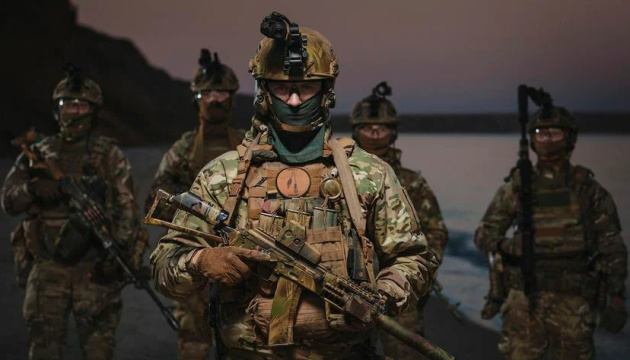
General Staff not rule out continuation of hostilities in 2023
Currently, there are reasons to believe that Russia’s full-scale war against Ukraine, which started on February 24, 2022, will go beyond the calendar year 2022.
The relevant statement was made by Commander-in-Chief of the Armed Forces of Ukraine, General Valerii Zaluzhnyi and First Deputy Chairperson of the Verkhovna Rada of Ukraine Committee on National Security, Defense and Intelligence, Lieutenant General Mykhailo Zabrodskyi in the article for Ukrinform, ‘How to Ensure a Military Campaign in 2023: Ukrainian Perspective’.
“The full-scale war, unleashed by the Russian Federation against Ukraine on February 24, 2022, has long moved beyond the concept of a local conflict of medium intensity. This refers both to spatial indicators, the number of military forces involved and the convincing list of weapons and other high-technology equipment inherent in this military confrontation. The separate issue is the duration of the said conflict. In no way, does it fit either into the framework of the ‘blitzkrieg’ announced by Russia or the duration of the active phases of hostilities in the wars at the beginning of the 21st century. In any case, the duration of the war is already measured in months. In addition, there is every reason to believe this time count will go beyond the calendar year 2022,” the article reads.
The potential directions of the offensive by Russian troops are as follows: reaching the administrative border of Donetsk Region, advancing in the Zaporizhzhia direction, launching armed hostilities from the territory of Belarus and making another attempt to seize Kyiv.
“Some operational prospects for the enemy are visible in the Izium direction and the Bakhmut direction. The potential ultimate goal of such actions can be to reach the administrative border of Donetsk Region. The prospects for advancing in the Zaporizhzhia direction are even more attractive. They will ensure further actions to the north and posing a direct threat of taking control of Zaporizhzhia and Dnipro, which in turn will result in the Ukrainian side losing control over a significant part of Left-Bank Ukraine. Returning to the plan to seize Kyiv and the threat of launching the repeated armed hostilities from the territory of Belarus are also not excluded from the agenda,” the authors of the article noted.
According to Zaluzhnyi and Zabrodskyi, the greatest opportunities are opened for the enemy by further advancing in the Southern Bug direction from the operational bridgehead on the right bank of the Dnieper. Success in the south, in case of making a quick and correct use of it, can have a double effect. On the one hand, there are quite real prospects of capturing Mykolaiv and Odesa. On the other hand, it will pose a threat in the direction of Kryvyi Rih and later – in the direction of central and western Ukraine.
In addition to the military benefit, such strategic actions in eastern and southern Ukraine would bring Russia political and economic dividends. They include the ensuring of security for the self-proclaimed republics and the logical, albeit late, completion of the so-called ‘special operation’, as well as preventing Ukraine’s access to the Black Sea, establishing control over the key element of Ukraine’s energy system, South Ukraine Nuclear Power Plant, etc.
At the same time, the authors of the article named the global problems for the Russian Federation, which may disrupt the aforementioned plans. These are international isolation, partial economic pressure through international sanctions, difficulties with general mobilization, and the lack of modern weapons and equipment, which will become even more acute for the Russian Federation over time.
Photo: General Staff of the Armed Forces of Ukraine
mk
